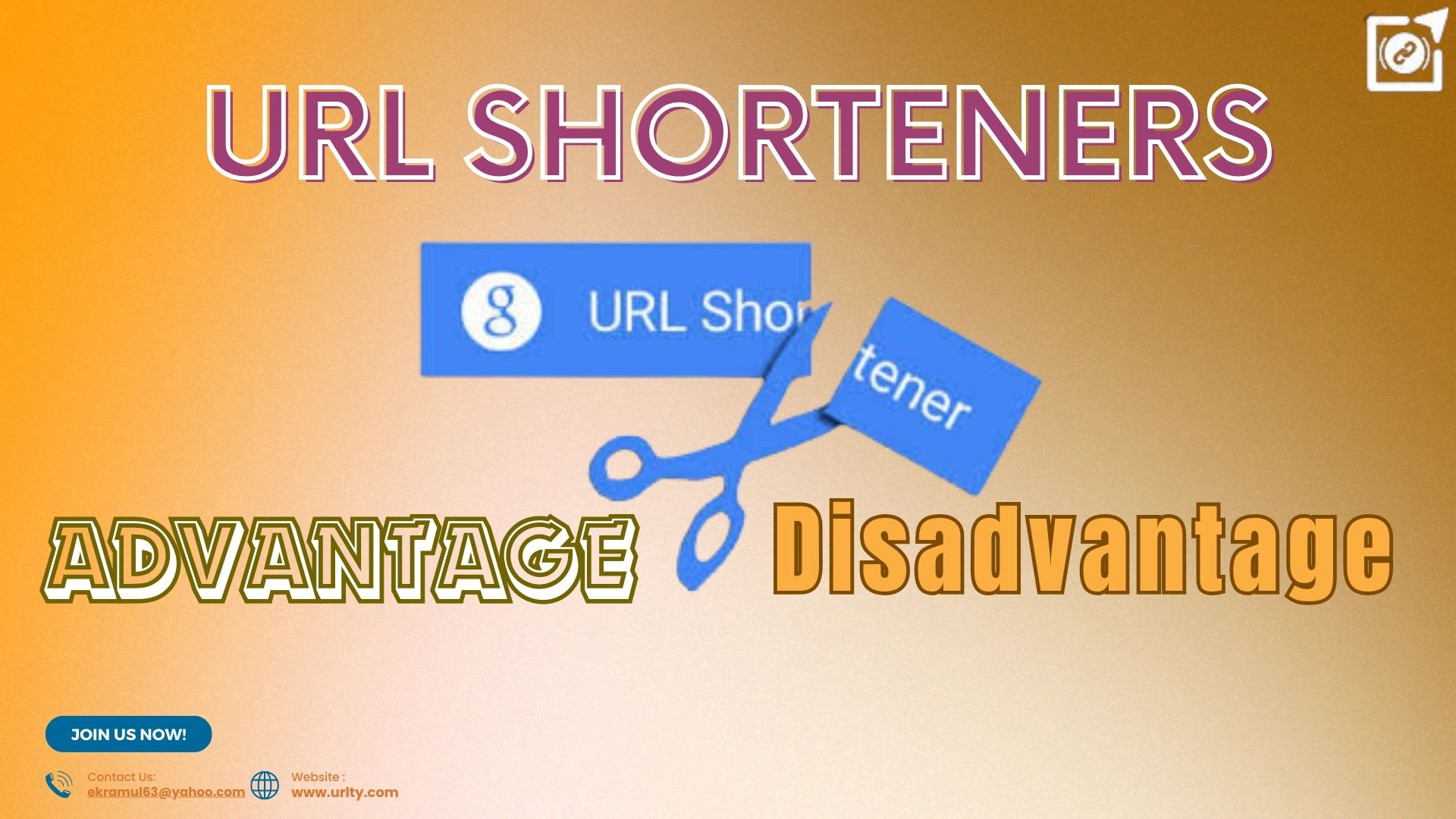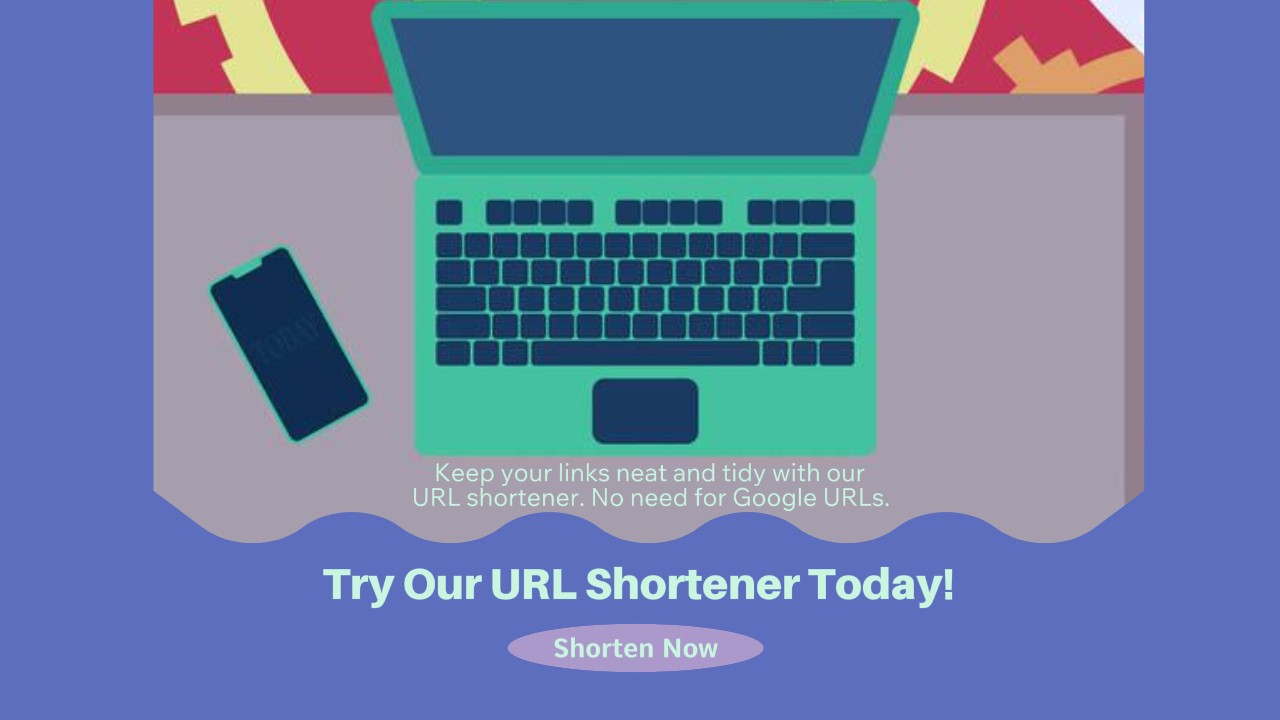Exploring the Advantages and Disadvantages of URL Shorteners
In this article we will learn about advantage and disadvantage of URL shorteners. In the vast expanse of the internet, URLs (Uniform Resource Locators) serve as the digital addresses guiding users to their desired destinations. However, these addresses can often be long and cumbersome, especially when dealing with complex parameters or tracking codes. Enter URL shorteners – the digital wizards that transform lengthy URLs into concise, manageable links. While these tools offer undeniable benefits, they also come with their fair share of drawbacks. Let's embark on a journey to uncover the advantages and disadvantages of URL shorteners.
Advantages:
Conciseness and Aesthetics: The allure of simplicity cannot be overstated in the digital realm. URL shorteners distill lengthy, unwieldy web addresses into elegant, compact links, making them visually appealing and easier to digest. This aesthetic appeal extends across diverse platforms, from social media posts to email signatures, enhancing the overall user experience.
Enhanced User Experience: At the heart of every digital interaction lies the user experience. Shortened URLs offer a smoother, more seamless browsing experience by eliminating the cognitive burden associated with deciphering complex strings of characters. By presenting information in a concise and intuitive format, they empower users to navigate the web with greater ease and efficiency.
Tracking and Analytics: In the realm of digital marketing and analytics, data reigns supreme. URL shorteners provide a gateway to invaluable insights by offering robust tracking and analytics capabilities. From click-through rates to geographic demographics, these tools furnish users with a wealth of data to inform their marketing strategies and content optimization efforts.
Customization: In a crowded digital landscape, branding is paramount. URL shorteners afford users the opportunity to inject their links with a dose of personality and branding flair. Whether through custom domains or branded short links, users can imbue their URLs with distinctiveness, reinforcing brand identity and fostering brand recognition.
URL Management: With great power comes great responsibility – and URL shorteners are no exception. These tools empower users with the ability to organize and manage their links with unprecedented ease and efficiency. Through centralized dashboards and intuitive interfaces, users can wrangle their links with finesse, streamlining workflows and maximizing productivity.
Space Conservation: In a world constrained by character limits and byte restrictions, every character counts. Shortened URLs serve as digital alchemists, transforming verbose web addresses into succinct, space-saving snippets. This conservation of space proves especially valuable in contexts such as social media posts and SMS messages, where brevity reigns supreme.
Disadvantages:
Link Rot and Dependency: Beneath the veneer of convenience lies a lurking specter – the specter of link rot. URL shorteners introduce an element of dependency, tethering users to the whims of the shortening service. In the event of service disruptions or discontinuations, all associated links are thrust into oblivion, leaving behind a trail of broken pathways and shattered expectations.
Security Concerns: In an age rife with cyber threats and digital vulnerabilities, security reigns as the paramount concern. Shortened URLs, with their cloak of anonymity, pose a potent risk to unsuspecting users. Concealed beneath their abbreviated facade lurk the specters of phishing attacks, malware downloads, and other nefarious exploits, preying upon the unwary and unprepared.
Loss of SEO Value: For businesses and marketers alike, visibility is the currency of success. Yet, in the realm of search engine optimization (SEO), shortened URLs wield diminished influence. Stripped of descriptive keywords and contextual cues, these truncated links struggle to assert their presence amidst the digital cacophony, relegating their SEO potential to the shadows.
Limited Longevity: In the ephemeral realm of digital communication, longevity is a rare commodity. Shortened URLs, with their transient nature, embody this fleeting essence. As platforms evolve and content cycles ebb and flow, the longevity of shortened links grows increasingly precarious, threatening to consign them to the annals of digital obscurity.
Reduced Click Trustworthiness: Trust, once lost, is a difficult commodity to regain. Shortened URLs, with their enigmatic aura, often inspire skepticism and wariness among users. In an era marred by cyber threats and online scams, the mere sight of a shortened link can trigger alarm bells, deterring users from clicking and thwarting marketing efforts in the process.
Data Privacy Concerns: In the labyrinthine realm of digital data, privacy stands as a bastion of protection. Yet, within the confines of URL shorteners, this bastion is often breached. As users traverse the digital landscape, their footsteps leave behind a trail of data – data that may be logged, tracked, and monetized by shortening services, raising concerns over privacy and data sovereignty.
In conclusion,
URL shorteners offer a convenient solution for transforming unwieldy URLs into sleek, manageable links, enhancing accessibility and user experience across the web. However, they also entail inherent risks and limitations, ranging from security concerns to potential loss of SEO value. By weighing the advantages against the disadvantages and implementing best practices for link management and security, users can harness the full potential of URL shorteners while mitigating associated risks.



